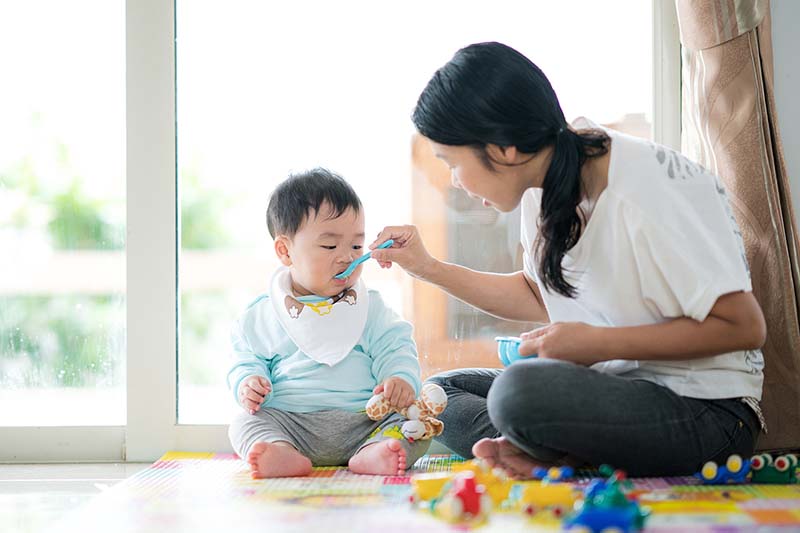Families For Life | Feeding Tips

Avoid forcing your child to eat
- Most children are fearful of trying new food. They can take up to 15 tries or more to accept a new taste.
- If your child appears to dislike a particular food, stop and try it again a few days later. Keep going until she gets used to it.
- Avoid forcing the spoon into your child’s mouth as this will create a negative experience during feeding and hinder future feeding experiences.
Family mealtimes
- Eating together at mealtimes may help your child learn and be more interested in food as she watches everyone else eat.
Limit mealtimes to under 30 minutes
- Meal times should not last for more than 30 minutes as a child may lose interest or get tired.
Avoid distractions
- The use of television, toys or videos should be avoided and discouraged during feeding.
- Reduced attention to food may lead to reduced interest towards food, and affect the learning of important feeding skills such as chewing.
- Over time, your child may also learn to rely on these distractions to feed.
Food play
- Allow your child to play with food. It is part of the learning process of eating!
- Let your child see, handle or play with empty bowls and spoons to get her interested in eating.
- You can present food in an interesting manner such as making a happy face with cereal on a plate.
Praise and encouragement
- Do not forget to praise your child when she attempts a new food or learns a new skill during feeding.
- Aim for feeding to be a positive and happy experience for your child!
Contributed by:
Speech Language Therapy Service, KK Women’s and Children’s Hospital